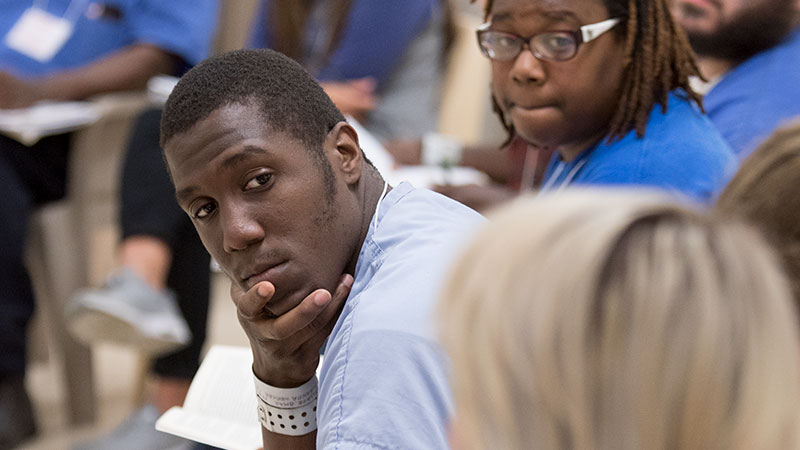
My colleague and friend, the Rev. Vivian Nixon, executive director of the College and Community Fellowship, said something that deeply moved me when we last spoke. I asked her, as well as several other experts in the field of higher education in prison, what metrics we should be looking at to measure the success of these programs. We know about recidivism, of course, and many analyses have shown that prison education programming significantly reduces the probability that individuals will return to prison after they’re released.
See Also:
- Lumina Foundation makes investments to bolster prison education
- Educating people in prison helps them—and us
What Vivian said was this: “We have studied the field of higher education for decades. We know what happens to students who earn a postsecondary credential. Why in the world would the metrics and outcomes be any different for people who earn them while incarcerated?”
She’s right.
We know that postsecondary credentials enable people to earn more, experience greater stability and mobility in their jobs, lead to greater wealth creation, home ownership, insurance coverage, and stronger health outcomes. Indeed, people with postsecondary experience live an average seven years longer than those without. And importantly, the likelihood of being happy is significantly higher for those who have a credential.
Compared with outcomes like these, recidivism seems like a pretty marginal measurement. After all, as Jody Lewen, executive director of the Prison University Project at San Quentin, has said, “Someone can be dying under a bridge, and not recidivate.”
Mary Gould, associate professor of communication at St. Louis University, runs the St. Louis University prison program. Here she talks about the program and why it’s important that prisoners have the opportunity to receive quality educational experiences.
The objectives of improving and expanding higher education in prison, and support for re-entering individuals to complete credentials, have to go beyond saving money and reducing the prison population. Of course, those are good outcomes and have drawn support from conservatives and liberals. But as we consider the consequences of our long history of race-driven mass incarceration policies, it will be even more important for policymakers to measure the impact of higher education in prison in more robust ways.
For example, we need to measure credential attainment for this population. Even upon release, formerly incarcerated individuals face incredible hurdles, from getting a job to getting housing. Postsecondary credentials signal that people have skills and ability, and can enable them to compete. We need to measure employment outcomes and earnings. A job is necessary to fully participate in American life, and earning workers have much less incentive to commit crimes.
We also need to measure the impact of policies and practices that govern the lives of incarcerated and re-entering individuals. In some states, for example, inmates can access training programs that result in certifications—a huge benefit to finding a job once released. However, regulations often prohibit people with certain convictions from gaining a license, effectively cutting them out of the profession. Not only should programs without clear pathways not be offered inside prisons, licensing boards should explore how restrictive policies can damage the prospects of already marginalized people.
Our work in this space has been profoundly influenced by leaders like Vivian and Jody, who consistently and forcefully advocate for the humanity of people who have been incarcerated. Yes, recidivism is an important statistic. But what we and our partners are working to advance is much more important.
We need to understand who starts and persists toward a credential, who earns a credential, and employment outcomes post-release. And we need to improve the often incomprehensible array of restrictions, practices and policies in each state that create barriers to the continued enrollment, persistence and credential completion of incarcerated and re-entering individuals.
Everyone, from every background and situation, deserves the opportunity to improve themselves and to prepare themselves to provide for their family. They deserve the chance to be happy, and to contribute to our nation’s talent needs.
Haley Glover is a strategy director for Lumina Foundation, leading Lumina’s mobilization strategies, focusing on communities and institutions of higher education, and on work to define and expand student pathways to success.
